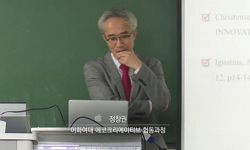The concept of a holistic innovation policy is defined in this article, with discussions of what it is, why it is relevant, and how it can be implemented to enhance product innovation. It is shown that the innovation systems approach has diffused rapi...
http://chineseinput.net/에서 pinyin(병음)방식으로 중국어를 변환할 수 있습니다.
변환된 중국어를 복사하여 사용하시면 됩니다.
- 中文 을 입력하시려면 zhongwen을 입력하시고 space를누르시면됩니다.
- 北京 을 입력하시려면 beijing을 입력하시고 space를 누르시면 됩니다.
Striving Towards a Holistic Innovation Policy in European Countries - But Linearity Still Prevails!
한글로보기https://www.riss.kr/link?id=A100516381
- 저자
- 발행기관
- 학술지명
- 권호사항
-
발행연도
2014
-
작성언어
English
- 주제어
-
자료형태
학술저널
-
수록면
1-19(19쪽)
- 제공처
-
0
상세조회 -
0
다운로드
부가정보
다국어 초록 (Multilingual Abstract)
The concept of a holistic innovation policy is defined in this article, with discussions of what it is, why it is relevant, and how it can be implemented to enhance product innovation. It is shown that the innovation systems approach has diffused rapidly during the latest decades and has completely replaced the linear view in the field of innovation research. The majority of European countries are striving in the direction of developing a more holistic innovation policy. However, it is concluded that the innovation policies in European countries are still dominantly linear despite the fact that holistic policy seems to be the driving vision. Innovation policy is behindhand. Why innovation policy is still linear is also preliminarily discussed. Policymakers attending conferences on innovation are practically always in favor of holistic (systemic, broad-based, comprehensive, etc) innovation policies, have abandoned the linear view by learning from innovation research. The division between “linear” and “holistic” seems to be located within the community where innovation policies are designed and implemented, a community composed of policymakers (administrators/bureaucrats)and elected politicians. Perhaps the dividing line is between these two groups in that politicians, who actually make the decisions, may still reflexively believe in the linear view. Nevertheless, there seems to be a failure in communication between researchers and politicians in the field of innovation and there is therefore a strong need to involve innovation researchers in policy design and implementation to a much higher degree. Another way to increase the degree of holism could be to separate innovation policy from research policy, since their integration tends to cement the linear character of innovation policy. The empirical results are based on a questionnaire sent to twenty-three EU Member States, out of which nineteen (83%) responded. Part of the work for this article was carried out for the European Research and Innovation Area Committee (ERAC) of the European Commission (DG RTD).
목차 (Table of Contents)
- Abstract
- 1. INNOVATION, GROWTH, JOBS, AND GLOBAL CHALLENGES
- 2. WHAT IS INNOVATION POLICY AND WHEN IS IT CALLED FOR?
- 3. A HOSTLIC INNOVATION POLICY: WHY, WHAT AND HOW?
- 4. FROM LINEAR THINKING TO INNOVATION SYSTEM: SOME THEORY
- Abstract
- 1. INNOVATION, GROWTH, JOBS, AND GLOBAL CHALLENGES
- 2. WHAT IS INNOVATION POLICY AND WHEN IS IT CALLED FOR?
- 3. A HOSTLIC INNOVATION POLICY: WHY, WHAT AND HOW?
- 4. FROM LINEAR THINKING TO INNOVATION SYSTEM: SOME THEORY
- 5. INNOVATION POLICY IS BEHINDHAND: STILL LINEAR
- REFERENCES
동일학술지(권/호) 다른 논문
-
Modes of Innovation and the National Systems of Innovation of the BRICS Economies
- 과학기술정책연구원
- Mario Scerri
- 2014
-
Stay or Return?: Key Decision Factors of Foreign STEM Talents in Korea
- 과학기술정책연구원
- Jungbu Kim
- 2014
-
Rethinking Borders of National Systems of Innovation
- 과학기술정책연구원
- Philipp Olbrich
- 2014
-
Inter-ministerial Policy Coordination for Digital Content Technology Development
- 과학기술정책연구원
- Wonkyung Rhee
- 2014





 ScienceON
ScienceON DBpia
DBpia






